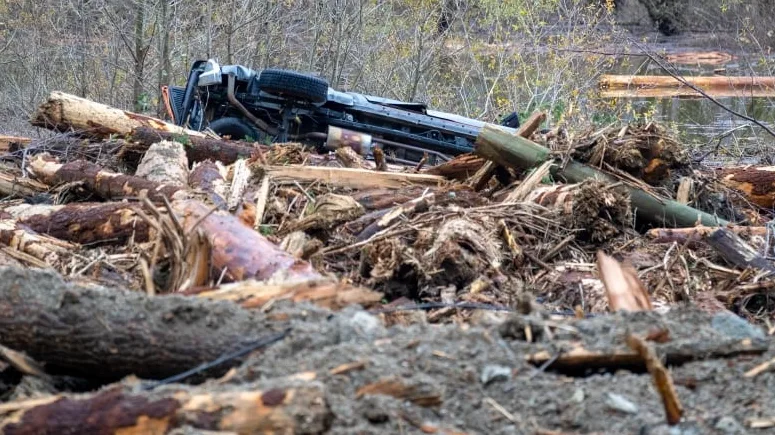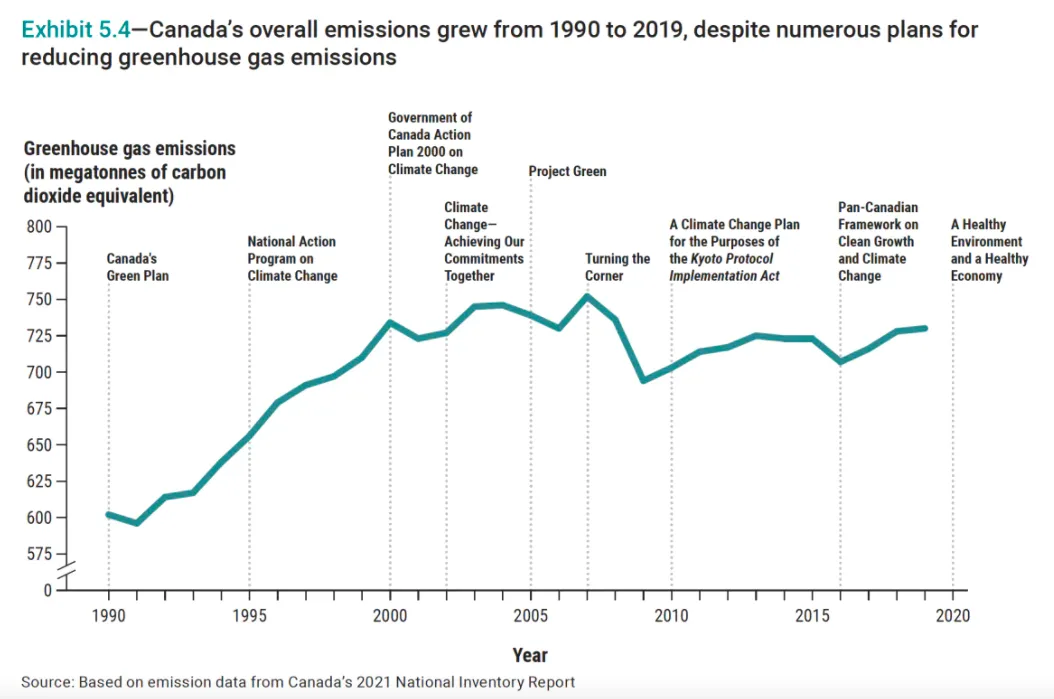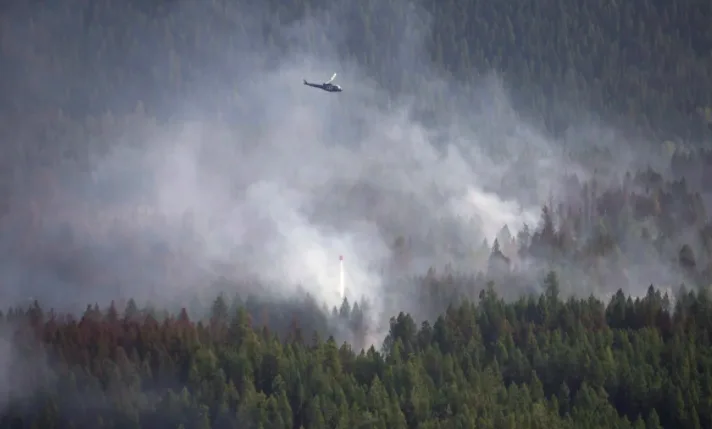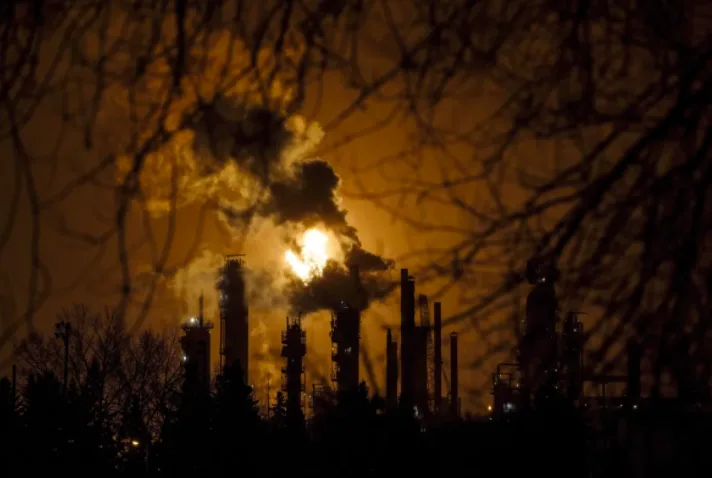
Canada's climate change efforts going from 'failure to failure,' report says
Despite three decades of effort, Canada's carbon emissions have risen 20 per cent since 1990, the country remains unprepared for climate disasters and subsidies for the oil and gas sector have not delivered promised emission reductions, say new reports from the federal government's chief environmental watchdog.
That damning verdict applies not only to past Liberal and Conservative governments but to the current government led by Prime Minister Justin Trudeau.
"Canada was once a leader in the fight against climate change. However, after a series of missed opportunities, it has become the worst performer of all G7 nations since the landmark Paris Agreement on climate change was adopted in 2015," said Environment and Sustainable Development Commissioner Jerry V. DeMarco in a media statement.
"We can't continue to go from failure to failure; we need action and results, not just more targets and plans."
DeMarco's five reports look at various federal efforts on the environment and conclude that, despite failures in a number of policy areas, Canada still has time to turn its record around.
"With strong, concerted action from parliamentarians and Canadians, Canada can move past its poor track record on climate change and meet its international climate obligations," one of the reports said.
"Building on momentum around the globe and at home, including recent climate legislation, stronger plans, and increased funding, Canada can achieve a cleaner, net-zero-emission future for generations to come."
The report looking at Canada's record on reducing greenhouse gas emissions is not an audit, DeMarco's office said, but rather an examination of progress meant to help governments improve outcomes going forward.
The commissioner identifies eight lessons that could get Canada back on track with its target of cutting emissions 40 to 45 per cent below 2005 levels by 2030.
KEY LESSONS
The first requires improved policy leadership and coordination between federal and provincial governments.
The commissioner notes that Alberta, Saskatchewan and Newfoundland and Labrador produce 97 per cent of Canada's oil and gas and said that any discussion about cutting emissions has to closely involve energy-producing provinces to reduce national tensions over the issue.
"Canada needs to depolarize the climate change discussion to move the debate from whether the country should significantly reduce its emissions and toward a discussion on how emissions should be reduced," the commissioner said.

(Commissioner of the Environment and Sustainable Development)
The commissioner's office said that while Canada's oil and gas sector is responsible for eight per cent of GDP, it's also to blame for 25 per cent of emissions.
To turn that around, the commissioner said Canada needs to fund efforts to transition workers away from emissions-intensive industries and increase the country's reliance on lower-emission energy sources.
PREPARING FOR CLIMATE DISASTERS
The commissioner said that dealing with weather-related disasters, such as the catastrophic flooding in B.C.'s interior, costs the country up to six per cent of GDP annually. Better preparation for such events is critical one of the reports said.
"Compared with the high costs of cleaning up disasters after the fact, investing early in adaptation measures avoids losses and generates significant economic, social and environmental benefits," the report said.
The report notes that recent polling shows just three quarters of Canadians agreed that global warming is caused by human activity and only 60 per cent of Canadians polled thought the federal government would be failing its citizens if it did not address climate change.
To address this, the commissioner is calling on the federal government to do a better job of countering misinformation on climate change.
The commissioner's office says that, in the past, Canada's stated climate targets have not been backed by strategies to follow through.
"While implementation of Canada's current climate plans may fulfil Canada's initial 2030 target of a 30 per cent reduction below 2005 levels, Canada now has a new, more ambitious goal of 40 per cent to 45 per cent. Therefore, the government will have to revisit the plans, policies, and actions needed to achieve the new targets," says one of the reports.
The commissioner calls on the federal government to broaden its team of partners to battle climate change and to take steps to protect future generations from its impacts. He said Ottawa could accomplish that by working closer with Indigenous communities, the financial sector, academics, non-governmental organizations and businesses.
OIL AND GAS SUBSIDIES
The commissioner said that while recent legislation, such as the Canadian Net-Zero Emissions Accountability Act and the Greenhouse Gas Pollution Pricing Act, represent progress, more must be done.
"Parliament … must intensify efforts in the fight against climate change to make up for decades of missed opportunities and missteps," the report said.

DeMarco's fall reports also contained a number of audits. One of the audits looked into the Emissions Reduction Fund, which was launched last year as part of the COVID-19 Economic Response Plan.
The fund provides $675 million to help land-based oil and gas companies maintain jobs, attract investment, increase competitiveness and speed up deployment of equipment to reduce greenhouse gas emissions, especially methane.
POOR REPORTING STANDARDS
The audit found that in designing the program, Natural Resources Canada did not ensure that drawing from the fund would actually lead to emissions reductions in the oil and gas sector. The audit also found that emission reduction expectations were "overestimated."
"It is important that programs aimed at oil and gas companies be efficient and effective at delivering emission reductions," said DeMarco. "Otherwise, such programs risk undermining Canada's efforts to fight climate change."
During question period in the House of Commons today, Green MP Elizabeth May called on the government to explain how it intends to fix the program.
Natural Resources Minister Jonathan Wilkinson said he welcomes the report and agrees with "a number of the commissioner's observations."
"One must remember that this particular program was a particular COVID response measure … but we are now beyond the worst of COVID and ... have now commenced a review of the future of this program and the remaining funding," he said.

A flare stack lights the sky along refinery row in Edmonton Alta, on Friday December 28, 2018. A report by the International Energy Agency says the oil and gas industry need to increase their efforts to address climate change. THE CANADIAN PRESS/Jason Franson (Jason Franson/The Canadian Press)
A separate audit in DeMarco's fall report looked at the work of 12 federal departments responsible for "healthy coasts and oceans, pristine lakes and rivers, and sustainable food."
The audit found that while these departments "contributed to meeting the goals" laid out in the federal government's Sustainable Development Strategy, they failed to adequately follow guidelines or properly report how actions they took contributed to meeting the goals laid out by the federal government.
"Gaps in reporting make it difficult for Parliamentarians and Canadians to understand progress being made against Canada's sustainable development commitments," said DeMarco.
The fall reports also noted that efforts to reduce excess deposits of nutrients in Lake Erie, Lake Winnipeg and the Wolastoq—Saint John River would be greatly improved if the federal government shared information and resources with other organizations involved in water management.
Excess nutrients, combined with a warming climate, can lead to "runaway growth of algae" that threatens water supplies, the report said.
'WE'RE DOING BETTER,' SAYS ENVIRONMENT MINISTER
Wilkinson said that projections made before the Liberals came to power said that Canada's emissions would be 12 per cent above 2005 levels by 2030. He insisted the country will meet its target of a 45 per cent cut in emissions by the end of the decade.
"To implement, you actually have to plan, you have to have detailed, concrete actions and that is exactly what Canada has," Wilkinson said.
Environment Minister Steven Guilbeault said he welcomed the report and agreed that "we have to do more."
"We're doing better," he added. "We're doing more things than any other government has ever done in the history of Canada when it comes to fighting climate change."
Guilbeault acknowledged that Canada has had a poor record when it comes to implementing climate change policies.
"We've been very good in Canada in having debates about targets and we've not been very good, until recently, about talking and working on implementation and that's what we've been very hard at work [on] since 2015," he said.
The minister flagged programs such as carbon pricing and investments in public transit as evidence of progress.
"We already have one of the most aggressive carbon pricing systems in the world," he said.
The Conservatives released a statement saying the commissioner stated something that they've pointed out for years — that targets are not being met.
"We urgently need policies that [encourage] the continued development of low carbon energy and carbon reduction," said the statement.
"Canada's Conservatives will continue to fight for a plan that prioritizes provinces, communities and workers to ensure that people can live in a country with a secure climate future. We can address both climate change and secure the future for workers."
This article, written by Peter Zimonjic, was originally published for CBC News.











